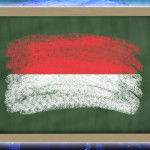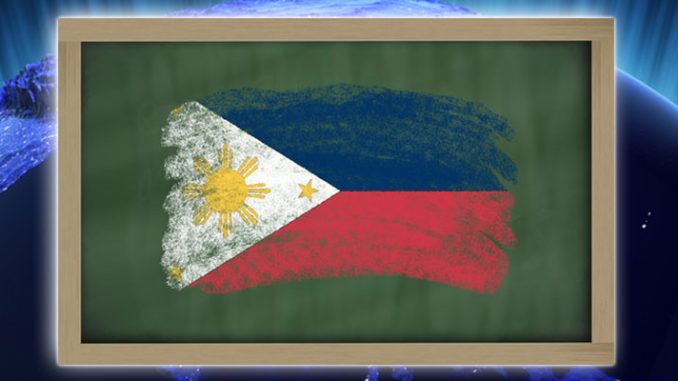
Thank you very much. It’s a real pleasure to be here today to join this comparative discussion of political leadership throughout the region and I am pleased to have this opportunity to talk about the Philippines. My talk today is based to a considerable extent on a paper co-authored with Joel Rocamora, executive director of the Institute for Popular Democracy in the Philippines. Our paper is entitled “Strong Demands and Weak Institutions: Addressing the Democratic Deficit in the Philippines.” It is now an article recently published in the Journal of East Asian Studies and part of a larger project on the crisis of democracy in Asia.
In our paper, Joel and I discussed in part the varying styles of political leadership that have been found in the Philippines since the fall of Ferdinand Marcos in 1986. First was Corazon Aquino, president from 1986 to 1992, who was of course the widow of a martyred politician, not herself a politician. She might be characterized as an elite restorationist, since her major achievement was to rebuild the elite-dominated democratic structures that had been undermined by her authoritarian predecessor. Next is Fidel Ramos, who was president from 1992 to 1998. A former general, he might be called a military reformer in the sense that he accomplished many reforms, although he concentrated much more on economic reforms than on political reforms.
Then there is Joseph Estrada, elected in a landslide victory in 1998, who remained in power until he was deposed by a popular uprising in 2001. A former movie star who displayed much more skill in movies than he ever did while in the Palace, he is remembered for heavy-drinking “midnight cabinet” sessions, as they were called in the Palace. I think perhaps the best way to think of Estrada is as a mix of Ronald Reagan and Boris Yeltsin. Estrada can be thought of as a populist self-aggrandizer, building a strong following among the masses – a great deal of popularity – and then redistributing wealth not so much in favor of the masses, but in favor of himself, his families (plural, of course), and his friends.
And finally, there is the current president, Gloria Macapagal-Arroyo, the daughter of a president in the 1960s, the holder of a doctoral degree in economics, who might be characterized as the great compromiser, given her willingness to accommodate almost any political force or influence that can help her in her goal of retaining the presidency in the elections scheduled for May 10. Because she came to power via popular uprising rather than through election, many have, of course, questioned her legitimacy. As she seeks to increase her own popularity, one sometimes gets the sense that despite her very privileged background, she perhaps wishes she were not just another traditional politician, but instead a movie star who could dazzle the crowds like her opponent.
So we do look at issues of political leadership in our co-authored article, but we try to go beyond mere differences in leadership styles to look at longer-term patterns in Philippine politics. Most importantly, we talk about the politics of personality and patronage and their centrality to Philippine politics, and the corresponding weakness of political institutions, most importantly political parties, which remain weak, ill defined, and poorly institutionalized. The weakness of political institutions has two notable disadvantages for Philippine democracy. First of all, it makes individual political leadership and personalities far more important than they should be. Philippine presidents have a great deal of authority; there are many provisions in the constitution that give them a good deal of strength. And those with strong political skills, such as Fidel Ramos in the mid-1990s, can push programs quite effectively. But without strong institutions to back them up, these efforts are very rarely sustained.
The second major disadvantage of the weakness of political institutions, particularly political parties, is that these weak institutions are unable to respond to strong demands that arise from Philippine society, particularly from the millions of Filipinos who are mired in poverty. This creates what we call a “democratic deficit,” a polity that is unable to address the needs of large segments of Philippine society. We argue the need for political reforms that can strengthen policies at the expense of personalities and promote programmatic politics over patronage politics, in particular reforms that are specifically aimed at creating stronger and more programmatic parties.
The extraordinary importance of personalities over programs and policies is especially apparent as the Philippines moves toward its general elections next month. The politicians from the major families are still around, very much on the scene, but they have had to make room for new faces coming forth from television and the movies. Of the two top candidates for the presidency, one is a traditional politician – President Arroyo – and the other is another movie star, Fernando Poe, Jr., a close friend of President Estrada. Both of the two top candidates for the vice presidency are newscasters. This is a much larger proportion of screen personalities than in any other previous election in the Philippines, and even more than one might find in the state of California. The upper house of the legislature, the Senate, has come to resemble more a house of entertainers than a house of lords. It not only contains the traditional politicians – often lawyers, sometimes from major old families – but also an assortment of basketball stars, movie stars, spouses of movie stars, TV newscasters, and others.
Political loyalties are ever changing in the Philippines – that’s been a given for a very long time. But even by the standards of Philippine politics, some of the shifts in political loyalties in recent years have been dizzying. This is especially obvious in the selection of senate candidates who were to run under the tickets of President Arroyo and her major opponent, Fernando Poe, Jr. The great divide of 2000 between President Arroyo and her supporters, on the one hand, and President Estrada and his, on the other, has already, in just three years, become enormously blurred, as persons who were pro-Estrada in 2001 have switched to the side of President Arroyo. In some significant cases, prominent politicians who were anti-Estrada in 2001 are now allied with Estrada’s good friend Fernando Poe, Jr. These dizzying shifts reflect the extreme weakness of Philippine parties, the dominance of patronage, and the lack of concrete issues and policies.
These longer-term trends and patterns are the subject of our analysis. We trace them back to the early American colonial period. The Philippines, of course, has the oldest democratic institutions in Asia, dating back more than one hundred years to the Assembly created by the revolutionary Malolos Republic in 1898 and to the democratic institutions created soon thereafter by the American colonial regime. While the Americans are often credited for bringing democracy to the Philippines, we talk about the many unhappy legacies that have come forth from the particular kind of democracy that the Americans created. In other words, the far-reaching institutional innovations of 100 years ago left behind a democracy that was dysfunctional in many ways. Yes, Philippine democracy does have many strengths, and this has became clear with the people power movement of 1986 and other events as well. But there are also a number of aspects that deserve reform.
We give quite a bit of attention to the analysis of the origins of Philippine democracy in the American colonial period, but there are just two points that I want to emphasize today about the type of democracy the American colonials left behind. First, it was a democracy of patronage-infested political parties heavily reliant on the “pork barrel” public funds that went through national legislators. Second, the colonial political system ensured the exclusion of the masses and control by the elites, specifically the oligarchy that was nurtured by American rule.
Because colonial rulers at the turn of the century built a democratic system almost entirely for the benefit of the landlord class, which they needed to woo away from revolutionary nationalist struggle, the landlords learned to love a democracy they could so readily control. By the time, in subsequent decades, the electorate expanded to include non-elites, the dominance of this national oligarchy was so well entrenched that challenges from below motivated by deep social injustices faced huge odds. This runs contrary to the theoretical literature; landlords are supposed to dislike democracy, but in the Philippines they very much learned to enjoy it because they have so effectively controlled it.
In our paper, we then proceed to some major patterns evident across time. In the post-independence years, the further extension of suffrage meant the increasing importance of media appeals, not just the face-to-face appeals of earlier times. So there were new styles of politics. But still the parties were patronage based, with practically no discernible difference between the two major political parties of the early postwar years, the Nacionalista Party and the Liberal Party. There was a high degree of movement back and forth of individual politicians from one party to the other.
There were also – particularly by the 1960s – new uses of presidential powers in electoral campaigns, especially exemplified by the innovations of Ferdinand Marcos in the late 1960s and his bursting of the national treasury in order to achieve reelection in 1969. Even after Marcos declared martial law in 1972, the new party he eventually started was very much patronage based. And if we go into the post-Marcos years, patronage remained the central logic of politics, and the new congress set up in 1986 was still dominated by many of the old clans. There has also been a continuing trend toward higher-cost elections, and almost every administration has had some major scandal attached to it as it seeks to raise funds for elections.
There are still very few differences among the parties in terms of programs. My favorite story in this regard is from the 1992 elections, in which – I am told – several of the major parties hired exactly the same team from the University of the Philippines Political Science Department to craft their platforms. So exactly the same group of political scientists was doing this, and according to one friend who was part of the scam, shall we say, they had to make sure that they used different fonts on the computer so it wouldn’t look too much alike from one platform to the other.
This final pattern that continues even after 1986 is the continuing exclusion of the masses. This was evidenced most dramatically by the anger that broke forth in late April-early May of 2001, when crowds of people stormed the presidential palace after the ouster of Joseph Estrada.
We go on to make some arguments about why political parties are important in general and how Philippine parties so commonly fail to fulfill the functions of political parties. First, political parties are important for aggregating interests. Sadly, in the Philippines it is more common for individual candidates to be creating parties than for parties to be creating and sponsoring candidates.
Secondly, in terms of voter choice, the weakness of parties really restricts the amount of choice that voters have. I come from a country that is not well known for giving voters a great deal of choice – the United States. The old joke in the United States is that between the Republicans and the Democrats you have a choice between Pepsi Cola or Coca Cola. I think this is certainly much less true in the coming election, I might add; given the complete wackiness of the leadership we have in Washington, I think there is a real choice in this particular year. But in any case, that is the common characterization of Republicans and Democrats – they’re a bit like Pepsi and Coke. If we transfer this idea to the Philippines, perhaps we might say that voters have a choice between Coca Cola in cans and Coca Cola in bottles, even less of a choice than in the U.S.
Thirdly, parties should ideally be able to empower the marginalized. As one scholar said, “meaningful social change in the Philippines has been inhibited because political parties do not structure political competition in a way that allows for representation of the poor and marginalized sectors. Quality of choice depends on parties.” Again, the failure of the parties to empower the marginalized was very much highlighted by the popular uprising of April-May 2001, and we say that that should serve as a very loud wake-up call to reformers in the Philippines to be pushing for important change.
Finally, parties should ideally provide a certain amount of stability. There is always uncertainty in elections, but stronger parties, by definition, help to institutionalize and stabilize the process. As you know, Philippine democracy post-1986 has been prone to all sorts of extra-constitutional actions, from coup attempts in the late 1980s under the presidency of Corazon Aquino to the popular uprisings of 2001, and most recently last July, the uprising [by junior army officers] in Makati, the major financial district of Metro-Manila.
The major argument that we are making is this: if the institutional innovations of the early 20th century brought forth patronage-infested political parties, it is important now in the early 21st century to bring about institutional reform toward a better and deeper democracy. There are many strengths of Philippine democracy upon which such an effort can build; there is also much to be improved. Hopefully the constitutional reform projects that are being discussed in the Philippines – temporarily on hold but hopefully to be building momentum again in 2005 – can give particular attention to reforming electoral and representational structures to promote the creation of stronger and more programmatic parties.
I won’t take the time today to go into details about how this might be done. At least, I won’t go into any depth on this; there is a lot of discussion in the Philippines about moving to a parliamentary system of government. I’ve heard some politicians speak of parliamentary government as if it were a complete panacea, after which there would be no more coup attempts, no more typhoons perhaps, no more earthquakes, no more volcanic eruptions. It will pretty much fix everything for the Philippines. In response to that, it is worth reminding people that there are parliamentary systems in the world that do not have strong parties.
In my own view, electoral reform is the most important reform and should be the precursor to other reforms, which might include a decision to go to a parliamentary structure. Electoral reform could begin with some pretty small changes, for example, going back to something that has not been allowed since the 1950s – straight party voting. Voters could just tick off one party for all offices. Secondly, the Philippines has a rather odd system in which the president and the vice-president are elected separately. They run on a ticket but are elected separately. So it is very common to have a president from one party and a vice president from the other. That could be obviously fixed by putting them on the same ticket.
And third, it would help a great deal if the nuts and bolts of elections were improved. There were efforts to do this last year but they broke down in a corruption scandal and the Philippines is back, for the coming election, to the same old-fashioned system it has had in the past: When voters go into the polling place, they have to write down the names of all the candidates they are voting for, and that includes the president, the vice-president, 12 members of the Senate, the congressional candidate, the governor, the provincial board members, and on down to municipal and city levels. So it certainly would help to move away from that system. Quite clearly, if you’re a voter going into the polling place and you have to remember all those names, who are the names that come to mind? Probably movie stars and basketball players and some of the old families. So it is a system that very much perpetuates personality politics.
So these are just some of the small changes possible. In terms of larger changes, I think a proportional representation system would be particularly promising, perhaps moving half the House of Representatives and all of the Senate to the proportional system. The Philippine Senate is currently elected on a national district, so it would be relatively easy to move that over to proportional representation, presuming that a Senate would survive constitutional reform. So those are just a few ideas of my own. I’m involved in a project looking at constitutional reform measures in the Philippines, and it’s clear that there are no magic bullets in this process. I know that Thailand has recently been through a constitutional reform project, and much has to be learned from that.
Our argument is that the new century deserves new institutional arrangements. The creation of stronger parties is the most important way of closing the democratic deficit and making Philippine democracy more responsive to the citizenry as a whole. As momentum does build toward constitutional revision, probably next year, its number one priority, we argue, should be a new set of institutional innovations in representational and electoral structures that can move the Philippines away from the politics of personality, away from excessive attention to political leadership, and give people a greater sense of choice. Thank you.
Giles Ji Ungpakorn: Thank you very much, Prof. Paul Hutchcroft. When I was discussing Filipino politics before the last elections, one commentator felt that there was perhaps a little bit more choice than what Prof. Hutchcroft indicated. The choice put to me was between electing a fairly intelligent and professional president who would swindle the people, and electing a rather stupid film star who would also swindle the people. Our next speaker is Professor Francis Loh Kok Wah who is based at the Universiti Sains Malaysia in Penang. He is a co-author of a book on Malaysian democracy, and he is also secretary of a multiethnic human rights organization in Malaysia.
 Pasuk Pongphaichit on Thailand
Pasuk Pongphaichit on Thailand
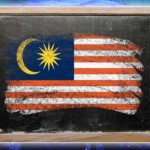 Francis Loh Kok Wah on Malaysia
Francis Loh Kok Wah on Malaysia
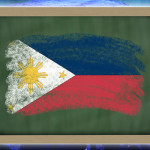 Paul Hutchcroft on The Philippines
Paul Hutchcroft on The Philippines
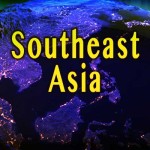 Benedict Anderson on Southeast Asia
Benedict Anderson on Southeast Asia
Kyoto Review of Southeast Asia. Issue 6 (March 2005). Elections and Statesmen

